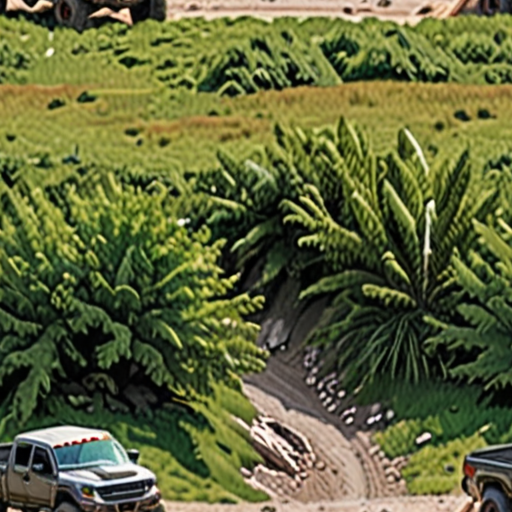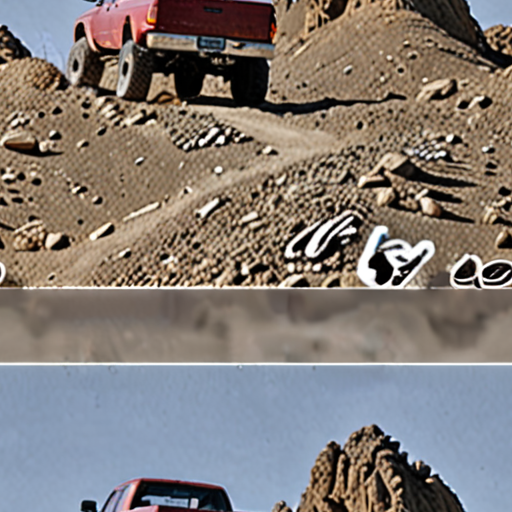“`html
When it comes to enhancing your lifted truck’s performance and style, choosing the right wheels is crucial. Whether you’re navigating rugged terrains or cruising on city streets, the perfect wheels not only complete your vehicle’s look but also improve its functionality. In this guide, we’ll delve into the essentials of selecting the best wheels for lifted trucks, covering everything from tire size and load ratings to the nuances between different aftermarket rim brands. Discover the optimal balance of size, style, and performance for your lifted truck, and learn how various wheel sizes impact your ride. We’ll also explore the best options for off-roading and tackle common misconceptions about wheel and lift height dynamics. Whether you’re considering 18-inch rims or weighing the pros and cons of 4WD vs. AWD systems for off-road adventures, this comprehensive overview will help you make informed decisions and elevate your truck’s capabilities.
“`
Tire Size Options for Lifted Trucks
We understand that choosing the right tire size for your lifted truck can be overwhelming, considering various factors such as off-road capability, on-road comfort, and overall performance.
- Larger Tires: 35 to 40 inches – Suitable for extreme off-roading and heavy-duty applications, these larger tires provide increased ground clearance and traction but may compromise on-road handling and fuel efficiency.
- Moderate Tires: 33 to 36 inches – A popular choice among lifted truck owners, these tires strike a balance between off-road capability and on-road comfort, offering decent ground clearance and traction without sacrificing too much fuel efficiency.
- 30 to 32 inches – Ideal for lighter off-roading and daily driving, these smaller tires prioritize on-road comfort and fuel efficiency while still providing adequate ground clearance and traction.
When selecting the ideal tire size for your lifted truck, consider factors such as your vehicle’s weight capacity, suspension lift height, and intended use. Consult with a reputable tire dealer or mechanic to determine the best tire size for your specific needs.
Some popular tire manufacturers for lifted trucks include:
- BFGoodrich
- Toyo
- Nitto
- General Tire
These brands offer a range of tire sizes and models suitable for lifted trucks, each with its unique features and benefits. Research and compare different options to find the perfect fit for your vehicle.
Remember to always check local regulations regarding tire size and load ratings before making a final decision. Proper tire selection ensures optimal performance, safety, and longevity for your lifted truck.
Who Makes the Best Aftermarket Truck Rims?
We’ve got you covered with our top picks for the best aftermarket truck rims.
- Incubus Wheels : As a leading manufacturer of high-quality custom wheels, we’re proud to offer a wide range of stylish and durable options for truck owners. Our wheels are designed to enhance the look and performance of your vehicle, with features like lightweight construction, aggressive styling, and advanced technology.
- Method Racing Wheels : Method Racing is a well-known brand in the automotive industry, offering a variety of high-performance wheels that are perfect for trucks. Their wheels feature a unique blend of style and functionality, with designs that cater to both street and off-road driving.
- Forgestar Wheels : Forgestar is a popular choice among truck enthusiasts, offering a range of high-quality wheels that are designed to deliver exceptional performance and style. Their wheels feature advanced materials and technologies, making them ideal for drivers who demand the best.
- Advan Racing Wheels : Advan Racing is a renowned brand in the world of motorsports, offering high-performance wheels that are designed to deliver exceptional speed and agility. Their wheels feature cutting-edge technology and innovative designs, making them perfect for truck owners who want to take their driving experience to the next level.
When it comes to choosing the best aftermarket truck rims, there are several factors to consider, including style, durability, and performance. At Incubus Wheels, we understand the importance of finding the right wheels for your vehicle, which is why we offer a wide range of options to suit every taste and preference.
Whether you’re looking for sleek and stylish wheels or rugged and aggressive designs, we’ve got you covered. Our wheels are designed to enhance the look and performance of your truck, with features like lightweight construction, advanced technology, and exceptional durability.
So why settle for ordinary wheels when you can have the best? Choose Incubus Wheels for your aftermarket truck rims and experience the difference for yourself.

Do Bigger Wheels Lift Your Truck?
We often get asked whether bigger wheels can lift your truck, and the answer is yes, but there’s more to it than just swapping out your old wheels for new ones.
- Ground Clearance
- When you install larger wheels, you’ll typically gain around 1-2 inches of ground clearance, depending on the size of the wheels and the suspension setup of your truck.
- This increased clearance can be beneficial for off-road driving or navigating rough terrain, but it may also affect your truck’s handling and stability on paved roads.
The Maximum Lift Limitation
The maximum lift limit for most trucks is around 3 inches, which means you can’t simply swap out your old wheels for much larger ones and expect a significant lift.
- Wheel-and-Tire Combinations
- To achieve a noticeable lift, you’ll need to pair your larger wheels with a suitable tire combination that’s specifically designed for your vehicle.
- This ensures that your truck maintains its balance and stability while still benefiting from the added clearance.
Choosing the Right Wheel-and-Tire Combo
Selecting the correct wheel-and-tire combination is crucial to achieving the desired lift and maintaining your truck’s overall performance.
- Research and Planning
- Before making any modifications, research your truck’s specifications and consult with experts to determine the optimal wheel-and-tire configuration for your needs.
- This will help you avoid potential issues with fitment, clearance, and overall performance.
Conclusion
In summary, bigger wheels can indeed lift your truck, but it’s essential to choose the right wheel-and-tire combination and consider factors like ground clearance, maximum lift limitations, and overall performance.

Choosing the Best Wheels for Off-Roading
When it comes to off-roading, having the right wheels can make all the difference between a smooth ride and a potentially disastrous one.
- Steel vs Aluminum Alloy Wheels:
- Steel wheels are incredibly strong and durable, making them ideal for rock crawling and heavy-duty use.
- However, they are heavier, which can affect performance and fuel efficiency.
- Aluminum Alloy Wheels:
- Lightweight and corrosion-resistant, aluminum alloy wheels offer improved performance and fuel efficiency compared to steel wheels.
- They are also less prone to damage from rocks and other debris.
- Other Considerations:
- Tire size and type: Make sure to choose tires that are compatible with your vehicle and suitable for off-roading.
- Wheel offset: A wider wheel offset can improve stability and traction, but may require modifications to your vehicle’s suspension.
- Load rating: Choose wheels that can handle the weight of your vehicle and any additional cargo or passengers.
- Top Picks for Off-Road Wheels:
- Borbet Wheels : Known for their high-quality, lightweight designs that offer improved performance and durability.
- KMC Wheels : Offers a range of off-road wheels that are designed to withstand harsh conditions and provide excellent traction.
- Method Racing Wheels : Specializes in high-performance off-road wheels that are designed for extreme terrain and conditions.
- Why Choose Incubus Wheels?
- We offer a wide selection of off-road wheels from top manufacturers.
- Our wheels are designed to provide improved performance, durability, and traction in harsh off-road conditions.
- Our team of experts is always available to help you find the perfect wheels for your vehicle and driving style.
Are 18 Inch Rims Good for Off-Roading?
When it comes to off-roading, choosing the right wheels can make all the difference between a smooth ride and a bumpy one.
- The general consensus among off-road enthusiasts is that smaller wheels, typically 16 inches or less, are better suited for off-roading due to their increased ground clearance and reduced weight.
- However, there are situations where larger wheels, such as 18 inches, may still be suitable for off-roading, particularly if you’re running high-quality off-road tires specifically designed for larger wheels.
Key Considerations for Choosing Off-Road Wheels
-
Tire Size and Type:
- Look for tires with a strong sidewall and aggressive tread pattern designed for off-road driving.
- A larger tire diameter may provide more traction, but it may also increase the risk of damage to your vehicle’s suspension and steering components.
-
Wheel Material and Construction:
- Aluminum or steel wheels are common choices for off-road applications due to their strength and durability.
- Bead-lock wheels offer improved security and stability, but they can be heavier and more expensive.
-
Offset and Backspacing:
- A wider offset can provide more clearance for larger tires, but it may also affect the vehicle’s handling and stability.
- Backspacing refers to the distance between the wheel hub and the rim’s edge; a shorter backspacing can improve clearance, but it may also reduce the wheel’s strength.
Benefits and Drawbacks of 18-Inch Rims for Off-Roading
While 18-inch rims may not be the most conventional choice for off-roading, they can still offer several benefits, including:
- Improved style and aesthetics
- Increased load-carrying capacity
- Better handling and responsiveness on paved roads
However, 18-inch rims also have some drawbacks, including:
- Reduced ground clearance
- Increased weight and unsprung mass
- Potential for increased wear and tear on suspension and steering components
Conclusion
Ultimately, whether 18-inch rims are good for off-roading depends on various factors, including your vehicle’s specifications, driving habits, and terrain. While they may not be the most ideal choice, high-quality 18-inch rims paired with the right tires and setup can still provide a capable and enjoyable off-road experience.

Is 4WD or AWD Better for Off-Road?
When it comes to navigating challenging terrain, choosing between four-wheel drive (4WD) and all-wheel drive (AWD) can be a daunting task.
- Understanding the Basics: 4WD systems typically engage all four wheels when needed, whereas AWD systems can send power to individual wheels based on traction requirements.
- Difference in Capability: 4WD vehicles often feature a two-speed transfer case, allowing for lower gearing and increased torque delivery to the wheels, making them better suited for serious off-roading.
- Weight and Cost: 4WD vehicles tend to be heavier and more expensive due to the added complexity and weight of the drivetrain components.
Off-Road Performance Comparison:
- Rock Crawlability: 4WD vehicles excel in rock crawling scenarios, thanks to their ability to deliver maximum torque to the wheels and maintain control on steep inclines.
- Muddy Terrain: AWD vehicles perform well in muddy conditions, as they can quickly adapt to changing traction demands and minimize wheel spin.
- Sand Dune Navigation: Both 4WD and AWD vehicles can handle sand dunes, but 4WD systems offer greater stability and control due to their ability to lock the center differential.
Everyday Driving Considerations:
- On-Road Handling: AWD vehicles generally provide better on-road handling and responsiveness, thanks to their ability to distribute power to individual wheels as needed.
- Fuel Efficiency: AWD vehicles tend to be more fuel-efficient on paved roads, as they don’t require the added energy consumption associated with 4WD systems.
Conclusion:
In conclusion, while both 4WD and AWD systems have their strengths and weaknesses, 4WD vehicles are generally better suited for serious off-roading applications due to their increased capability and control in challenging terrain.
However, AWD vehicles excel in everyday driving situations, offering improved on-road handling and fuel efficiency.
Ultimately, the choice between 4WD and AWD depends on your specific needs and preferences, and it’s essential to consider these factors before making a decision.

0 Comments